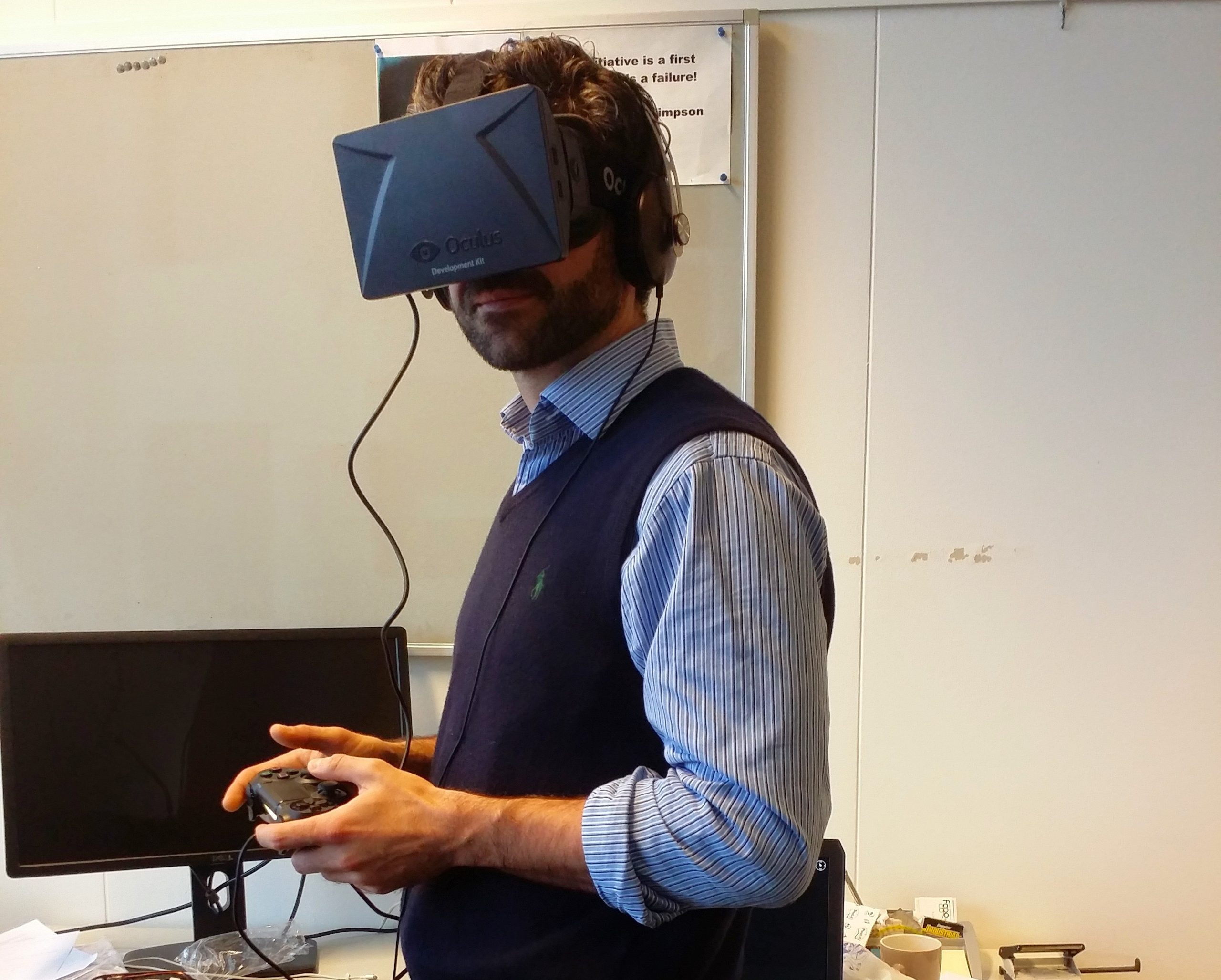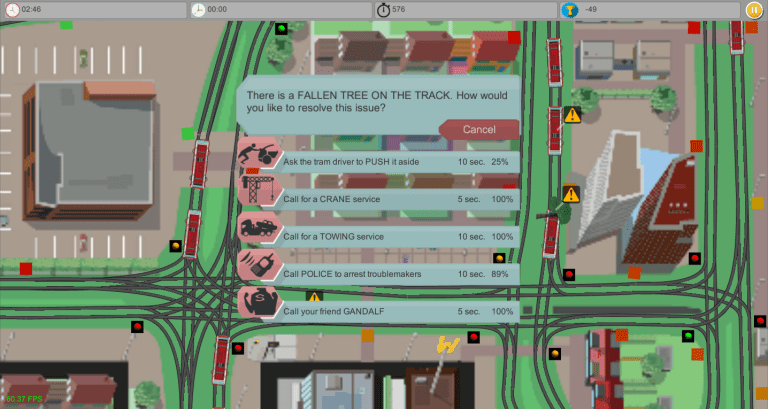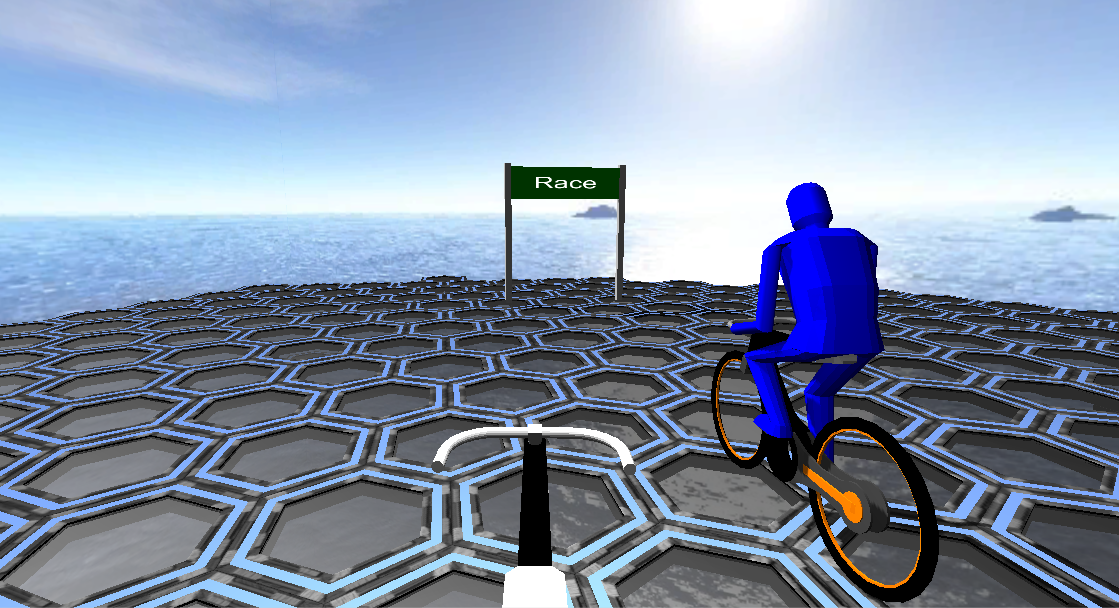For ten weeks, six student teams have been developing serious games. After having faced various, possibly conflicting, challenges, they presented their prototypes in the D@ta Hall on Tuesday, January 20, 2015.
“It’s not the smooth gaming you might be used to, which you’re going to see this afternoon,” Dr. Rafael Bidarra from EEMCS faculty warned the public. “The 29 students have had just ten weeks to produce a prototype that satisfies the wishes of the external commissioners. What they’re going to show you is the raw product thus far. Bugs and warts included.”
Welcome to the yearly presentation of the interdisciplinary project Building Serious Games. It’s open to master’s students of all faculties. “We put students together with different talents, backgrounds, and perspectives. They should do what none of them could do alone: to implement a serious game for a real-world setting and commissioned by a variety of companies and users,” Bidarra explained.
The first demo involves a bicycle simulator coupled with a laptop. The game Cyclotron aims to help foreign students to master the typical Dutch art of bicycling. The mission is simply to try and stay upright. Cycling involves steering into the direction that you’re falling, as research has shown. The game helps by interactively showing the player the way that she should turn the steering bar.
Quick LapScope is a game that follows the process of an endoscopic surgery to remove a patient’s gallbladder. The player has to go through an interview phase first to get a feel for the complete process. Next is a setup phase in which the assistant, monitors and the surgeon himself need to be positioned correctly. A surgeon needs to know what the correct positions are to ensure a correct startup of the surgery.


The serious game Legend of Iris helps blind children to develop their hearing, letting them safely experience how other blind people have learned to navigate in new environments. The player develops skills by solving puzzles. People with eyesight can help the blind player as teachers or tutors. The game works with the Oculus Rift gaming goggles, which makes the play feel very natural.


Physiofun is a mobile game that encourages office workers to exercise regularly. It does this in the context of a farm in space where the user has to perform tasks varying from plowing and sowing to harvesting. The accelerometer in the phone monitors the physical activity.


TramJam is a simulator that requires the player to make operational decisions about tram operations. The player has direct control over trams in the network. The player should achieve smooth operation by solving disruptions and rerouting trams if necessary, making sure the tram stops are regularly visited. Commissioned by simulation consultancy firm Macomi, the game is specially designed for tram traffic controllers to train them in flexible decision making.
Story Teller is a game that invites people in a community to join in card-based storytelling. A player’s adds a line in the story by selecting cards for character, action, location and item. For example, Goblin walks through the forest with a treasure and gets attacked. After that, it’s the next player’s turn. The main drawback of the current game is that sticking to the cards limits expressivity.
This year’s serious gaming project was coordinated and taught by Dr. Rafael Bidarra and Ben Kybartas from the section computer graphics & visualization at the Faculty of Electrical Engineering, Mathematics and Computer Science (EEMCS).



Comments are closed.